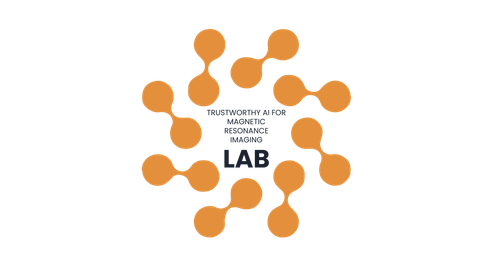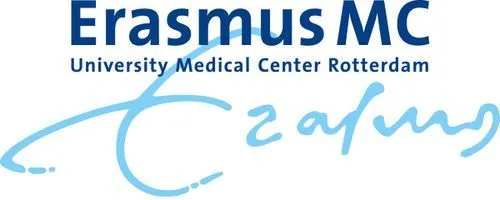The research of Trustworthy AI for Magnetic Resonance Imaging (TAIMRI) Lab aims to improve the accuracy and reduce the costs of MRI-based diagnosis using AI methods, with a focus on neurological and musculoskeletal diseases. TAIMRI Lab is a collaboration between Erasmus MC, General Electric Healthcare, and the Erasmus University of Rotterdam.
The aim of the lab is to improve the quality of MRI-based diagnosis with trustworthy AI methods. For this, we aim to optimize the full chain from image acquisition prescription, to image analysis and introduction of AI-supported acquisition and diagnosis in clinical practice. This can greatly improve the accuracy of diagnosis while reducing costs. At first, we focus on neurological and MSK diseases. Within the overall aim of TAIMRI Lab, there are five research projects. Specifically, we will:
– develop smart, adaptive, MR imaging protocols for precision diagnosis;
– develop end-to-end deep-learning-based MR image reconstruction;
– develop trustworthy AI for integrated diagnostics of brain tumors;
– develop trustworthy AI methods for improved diagnosis of bone and soft-tissue lesions on MRI;
– develop an approach that ensures acceptance of AI technology in the daily clinical radiology setting. The smart adaptive protocols together with the deep-learning based MR image reconstruction will form.
The smart adaptive protocols together with the deep-learning-based MR image reconstruction will form the basis for clinical MR scanning in the future. Key ingredients for these improvements come from the clinical expertise and experiences we have, and further develop, in the AI-assisted diagnostic approaches for brain tumors and bone/soft-tissue lesions. Specifically, in these approaches, image-based disease biomarkers will be created, which can be a subsequent target for the protocol adaptation. By focusing on two clinical domains, we enhance the generalizability of the developed methods and ensure broad applicability across disease domains.
For further information and updates on progress, please visit us at ICAIlab Trustworthy AI for MRI | BIGR.






